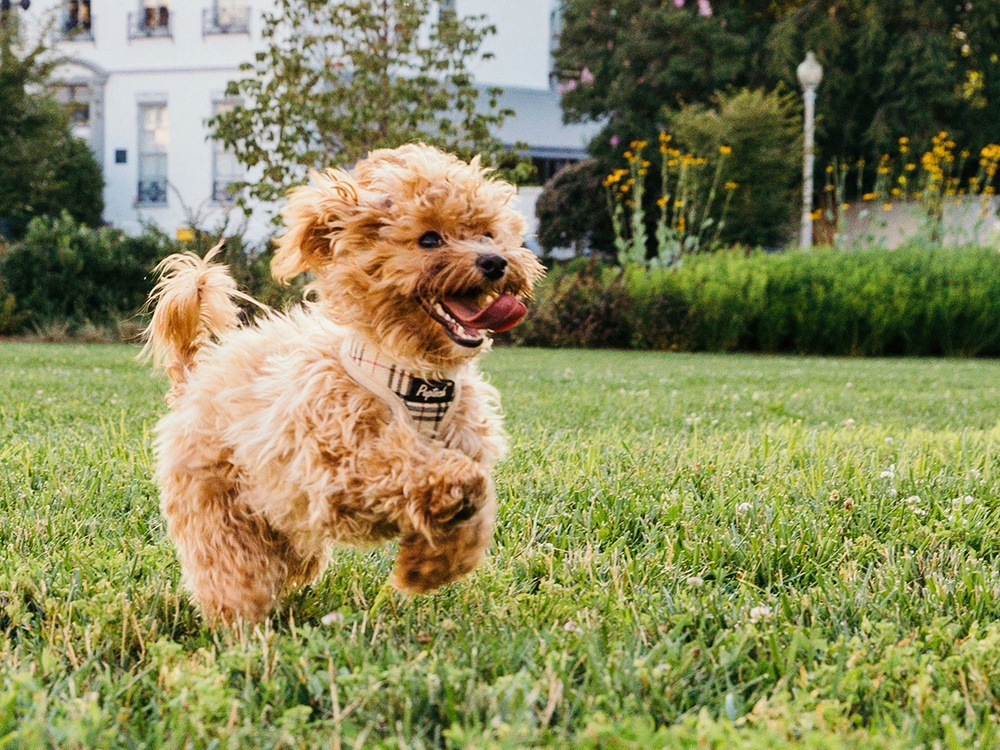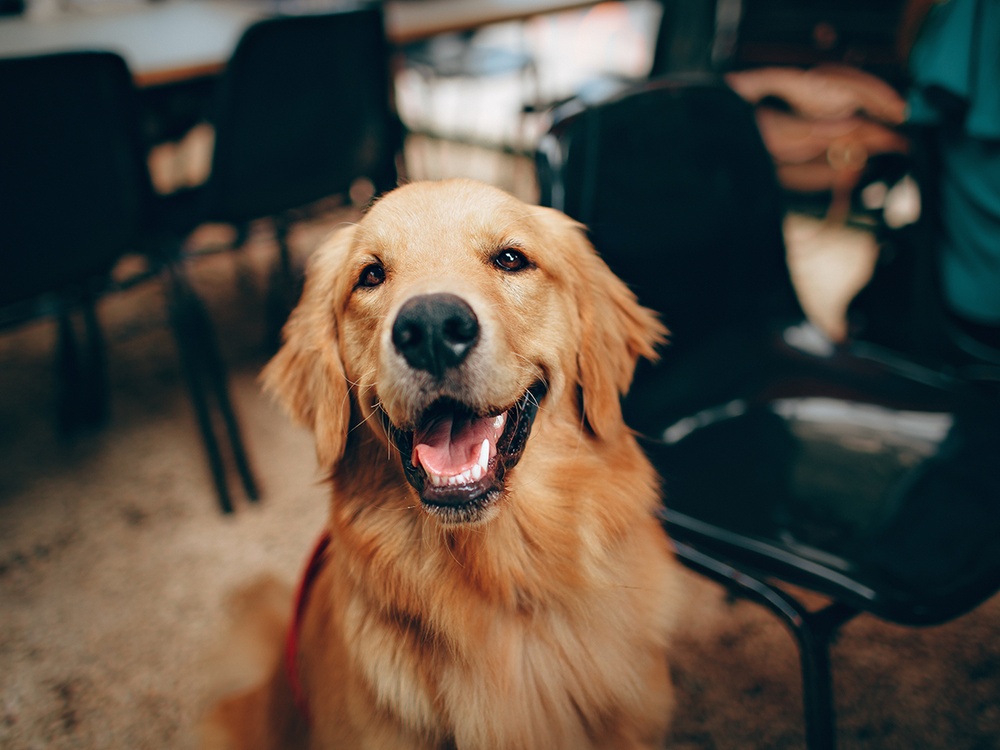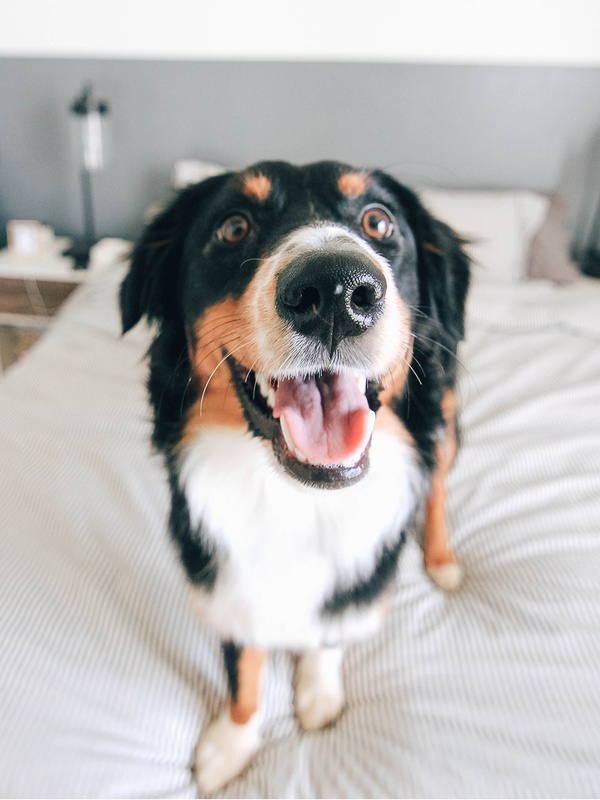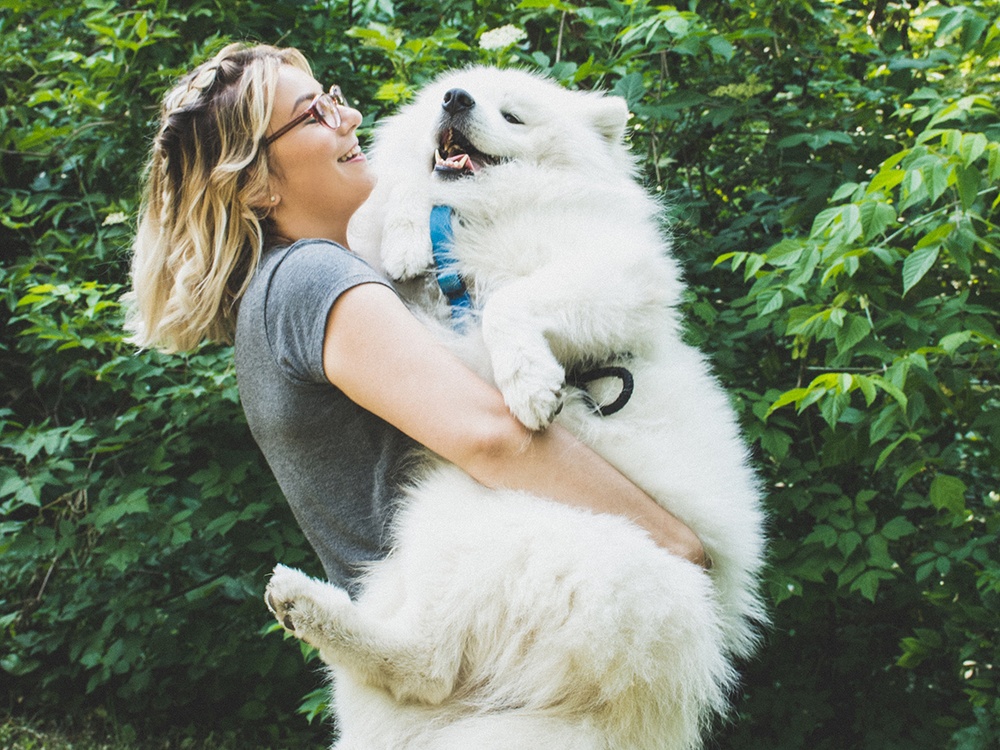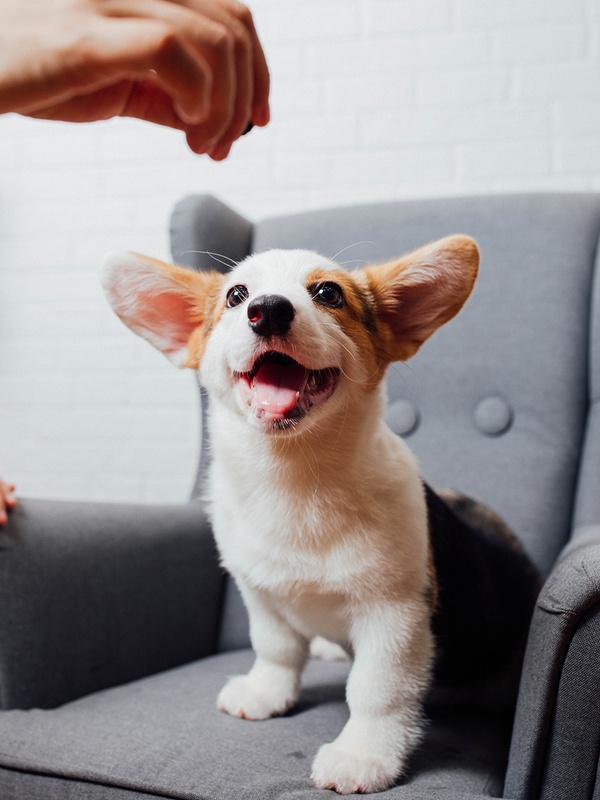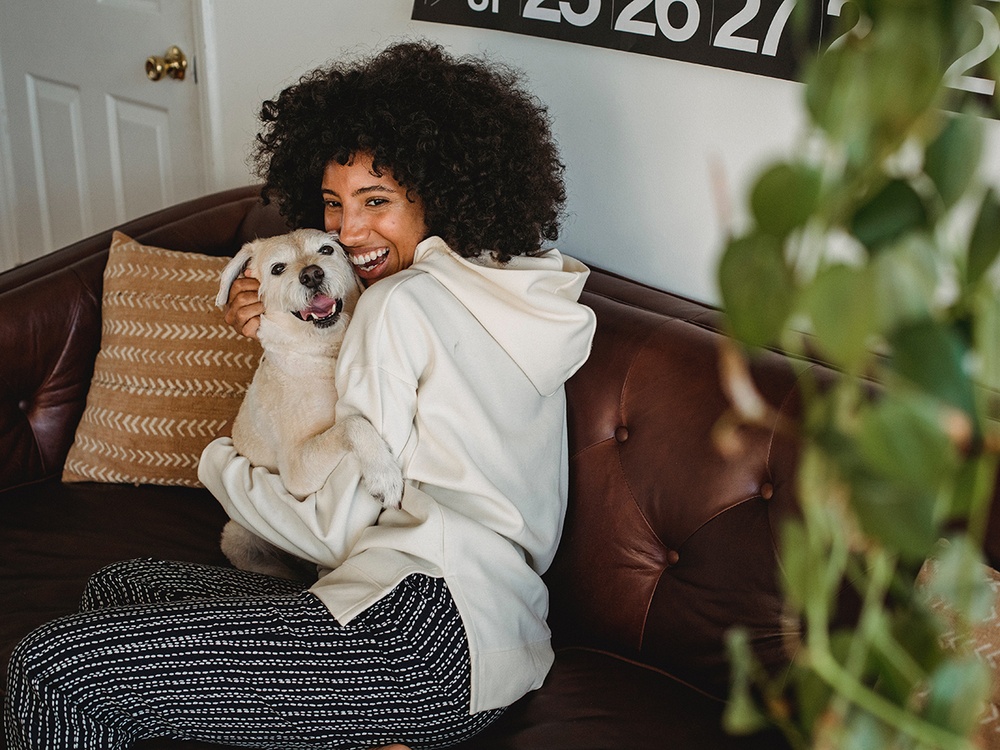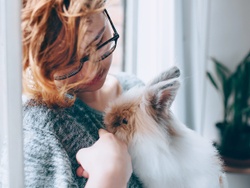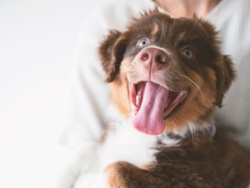New Dog Owner Guide: Tips for First-Time Dog Owners
First-time dog owners have a lot to consider when bringing a new dog home, even more for first-time puppy owners! While one perfect new dog owner guide doesn’t exist, there is plenty of advice and tips available for those considering adopting a new dog.
From researching dog characteristics to planning that first night home, here are some basics for what new dog owners should know.
Research Dogs Before Adopting
Before you choose a cute puppy and hope for the best, it's important to do some research before adopting a new dog. This is especially true for first-time dog owners!
Every dog has a unique personality but breed traits are often inherited just like physical features. Researching breed characteristics that fit well within your lifestyle will help you find the best fit for your family.
Dogs have been selectively bred for thousands of years to strengthen targeted physical and personality characteristics.
Think about how you like to spend your free time. Do you look forward to weekend hikes or are you getting cozy with a good book?
If rescuing, talk with the staff at the shelter or rescue about your family's lifestyle and the ideal type of dog you are hoping to match with.
If adopting from a breeder, talk with them about the personalities of the puppy's parents, and the selective features your dog was intentionally bred for. And ask them about anything people are commonly surprised to know about the breed. Responsible dog breeders are passionate about their dogs' health and lineage and will be happy to talk with you.
If you are adopting a new puppy from a breeder, research extensively to ensure you are supporting an ethical and responsible dog breeder. Ensure their breeding dogs are free of common congenital diseases.
Know What You’re Getting Into With A New Dog
While puppies are absolutely adorable, they are a big responsibility. Puppies are wonderful because they are somewhat of a blank slate and have not had an opportunity to pick up any bad habits. But as a blank slate – and also a baby, puppies require a lot of effort in the first months.
Rescue and shelter pets are often adults and some may have rough pasts to overcome and may need extra TLC and time to feel secure in their new family.
Regardless of your new dog’s past or age, adding a pet to the family is a big investment in time, commitment – and in finances.
Know Your Budget And Common Dog Costs
One of the most overlooked responsibilities in dog ownership is the cost. Estimates for the average lifelong costs of having a dog start at around $15,000. And while the companionship of a dog is priceless, your family will still want to prepare for the included expenses:
Necessities: harnesses, leashes, food and water bowls, crates, waste bags, beds, etc.
Routine vet visits, vaccines, and dental care
ID tag and microchip
Medications and supplements
Grooming costs vary from DIY home supplies to regular professional grooming
High-quality food: including the possibility of your dog needing a special diet
Training treats
Enrichment toys and chew toys
Training classes and supplies
Dog walkers or pet sitter services
The 3-3-3 Rule For A New Dog
Dogs take time to fully acclimate to a new home, whether they are a puppy or an adult the 3-3-3 rule can help you know what to expect with your new dog:
3 days of feeling overwhelmed and anxious
3 weeks to settle into their new environment and routines
3 months of bonding and building trust to be fully comfortable
Dogs who are rehomed or have gone through stressful transitions may need extra time to feel safe and secure in their new home.
How Long Does It Take To Adjust To A New Dog?
Your family will also be adjusting to their new family member and new responsibilities. Similar to the 3-3-3 rule, have extra patience and grace for your new dog and yourself as you both adapt to a big change.
Preparing For Your New Dog
First, get on the eye level of your dog, look around for hazards they may encounter, and dog-proof everything. Loose electrical cords, household cleaners, toxic plants, and even breakable valuables should all be out of the reach of your new dog. A baby or pet grate can be an easy solution to keep your new dog’s environment manageable.
Before you bring your puppy home for the first night you will want to be prepared with all the basics with this first-time dog owner shopping list:
Pet/baby gates
High-quality pet food and treats
Bowls: opt for stainless steel or ceramic dishes of the correct proportions
Basic grooming supplies: brush and nail clippers
Cleaning supplies
Collar, ID tags, and leash
Appropriately-sized crate or dog bed
Poop scoop and poop bags
Dog shampoo: even if you plan to have your dog professionally groomed, having some basics on hand is always a good idea
House cleaning supplies for potty training accidents and muddy paws
Pet first aid kit and a plan for a pet emergency
A toothbrush or dental treats
Toys: have a variety of toys so that your puppy can find out the types of toys they like
Have A Health Plan
When you adopt a new dog, whether puppy or adult, schedule a wellness visit with your veterinarian soon after. They will do a health assessment, talk with you about flea, tick, and heartworm preventative options and answer any questions.
Also, familiarize yourself with the common pet health hazards (especially toxic human foods) and when to take your dog to the pet emergency hospital.
If you suspect your dog has gotten into something potentially toxic, don’t wait. Quick action can save your pet’s life. Call your primary care veterinarian if they're open. If they are unavailable, call your local emergency vet.
You can always call ASPCA Poison Control (888-426-4435), available 24/7/365. Or the Pet Poison Helpline (855-764-7661), available 24/7/365 if you suspect your pet has ingested a toxin.
Opt Into Microchipping
A microchip is like an electronic ID tag. Smaller than a grain of rice, the microchip is injected under the skin around the shoulders. It carries a unique ID number that is connected to a profile online with your contact info.
If your dog becomes lost, even without a collar, they can quickly be reunited with you by simply having their chip scanned at a vet or shelter. If your pet came to you already microchipped, update the contact info on their online profile to yours, rather than the breeder or shelter info.
Have Reasonable Expectations
Your new dog is not going to be perfect. They will inevitably have an accident on your living room rug or mistake your favorite sandals for a chew toy.
Have patience as they learn what is and is not ideal behavior and remember that dogs don’t act out of malice or spite. In other words, they are doing their best. Most ‘bad’ dog behaviors are a dog not understanding what is asked of them or natural instinct being displayed in an undesirable way.
Training starts from day one as your new dog learns your preferences and boundaries.
Consistent And Positive Training
While training is an involved process, the benefits of a well-trained dog are undoubtedly worth the efforts. With proper training, you and your dog will understand each other's boundaries and expectations leading to less stress and more opportunities.
Creating a daily routine will help your dog to feel secure, especially in the adjustment period of joining your family.
The First Day With Your New Dog
You’ve dog-proofed your home and bought all the essentials. Now it’s time to bring your new dog home! This is an exciting time but also a big adjustment for both you and your new pup. Following some tips will help ease the transition for you both:
Routine
Keep to a usual routine, especially with bedtime and meal time and type. If you can, stick with the food your dog knows for a few weeks before slowly transitioning to your food of choice.
Potty Breaks
Offer many potty breaks and lots of praise when your new dog gets it right. Puppies will require extra patience. Be sure to take them out right after mealtimes and naps as this is when they’re likely to need it most. Puppies may require nighttime potty breaks until their bladder develops enough to hold it throughout the night.
Play
Offer positive playtime to bond and let out some energy. Puppies and older dogs will tire out quickly, so go at their pace.
Expect your new puppy to sleep – a lot!
Puppies are learning and growing, which takes a lot of energy! Some can sleep up to 20 hours a day, so don’t worry if your new pup is sleeping often, especially after playtime.
Avoid Overdoing It
Avoid walks and trips to the park. Your new dog just had their entire world shifted. Keeping their environment as stable as possible for the first weeks will help them feel more secure in their new home.
Also, puppies may not be fully vaccinated when you first get them so keeping them safe from common issues (like parvovirus) is imperative.
Build Trust
Spend lots of time building comfort and trust. If your dog arrived with a blanket or toy, keep it in their crate or bed. Scent is an especially strong sense for dogs, and having a familiar scent around will help them to feel more secure.
Your new dog may feel worried or anxious, especially the first few nights in their new home. It is ok to comfort them calmly to help them adjust.
Enjoy Your New Family Member
Whether you are a first-time dog owner or adding an additional four-legged family member to your home, preparing for your new dog will set you both up for success.
Expert Answers from a Veterinarian on Tips for First-Time Dog Owners
Q: What should first-time dog owners know about adopting a new dog from a breeder?
A: Adopting a dog from a breeder can be a great way to acquire a purebred dog in need of a home. Breeders often know their dogs well and can help educate new dog owners on what to expect from the breed. They may have the parents of the dog/puppy so you can have a general sense of their temperament predisposition, size, and appearance. Many breeders will also offer contracts to support the adopted dog if there are problems down the road.
Q: What are common challenges/mistakes people make when adopting a new dog?
A: The most common mistake owners make when acquiring a new pup is to integrate them into the world too quickly. New pet owners are proud of their new pups and want to show them off to the world. It is extremely overwhelming for a new pet to be taken to public places or meet lots of new strangers. For this reason, it is important to allow new dogs to decompress for a few weeks before quickly making new introductions.
Q: How soon after getting a dog should you take it to the vet?
A: Any puppy or dog should be assessed by a veterinarian within one to two weeks of acquisition. This is to ensure their general health, provide age appropriate vaccines, and to develop a health plan with the veterinarian. Prior to adopting a dog or puppy, they should have been given a bill of clean health.
Fact checked by Veterinarian

Dr. Paula Simons is an Emergency and Critical Care veterinary resident on her way to becoming a veterinary criticalist. She is originally from Philadelphia, Pennsylvania, and completed her veterinary training in Ontario, Canada, at Ontario Veterinary College. Dr. Paula Simons has a particular interest in critical care nutrition, trauma, and pain management. She enjoys the management of surgical patients and troubleshooting complex cases. Additionally, she is a huge advocate for her patients and ensuring their comfort. She has two cats named Moo and Kal, whom she loves dearly. More About Us

